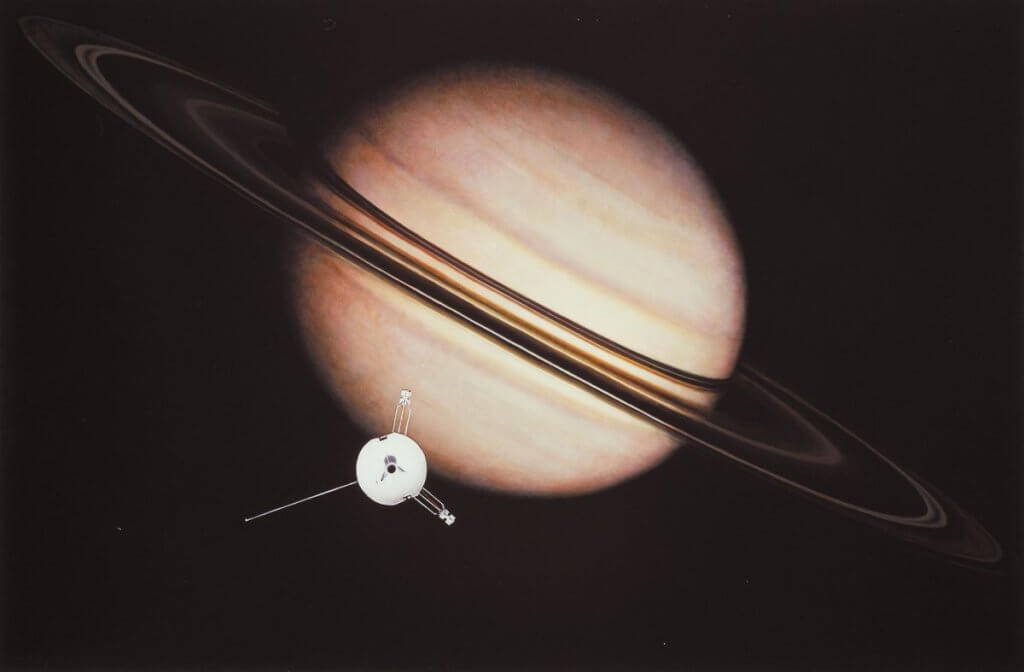On Sept. 1, 1979, NASA’s robotic space probe Pioneer 11 became the first spacecraft to fly by Saturn.
Pioneer 11 launched in 1973 on a mission to explore the Asteroid Belt, Jupiter and Saturn. It launched directly toward Jupiter, then used Jupiter’s gravity to slingshot around the planet, make a sharp turn and start flying toward Saturn. Four years and nine months later, it finally made it to Saturn.
During its closest approach, it was about 13,000 miles (2,100 kilometers) above the planet’s cloud tops. Because NASA’s two Voyager spacecraft were also on their way to Saturn at that point, they sent Pioneer 11 straight through Saturn’s rings so it could determine whether it was safe for the Voyagers to do the same thing years down the road. So Pioneer 11 pioneered the way through Saturn’s outer rings, going where no spacecraft had gone before – and nearly colliding with a small moon along the way.
Pioneer 11 actually discovered several moons, along with a new ring, and the first evidence of a magnetic field around Saturn.
On This Day in Space Archive!
Still not enough space? Don’t forget to check out our Space Image of the Day, and on the weekends our Best Space Photos and Top Space News Stories of the week.
Follow us @Spacedotcom and on Facebook.

